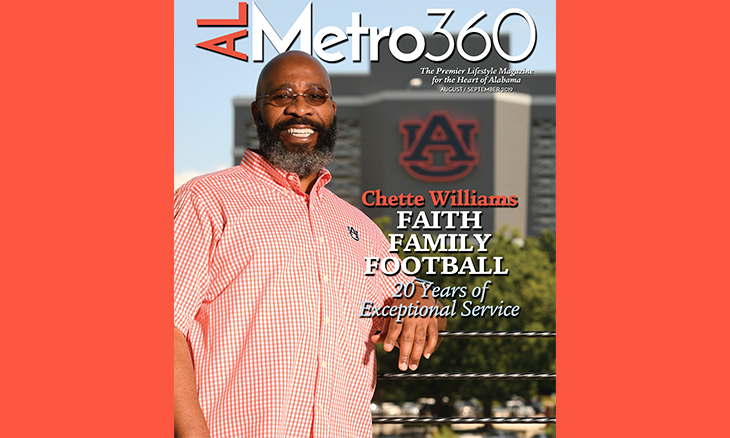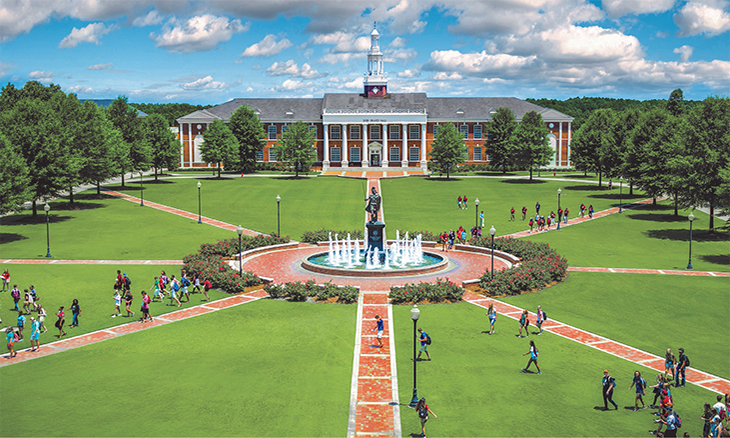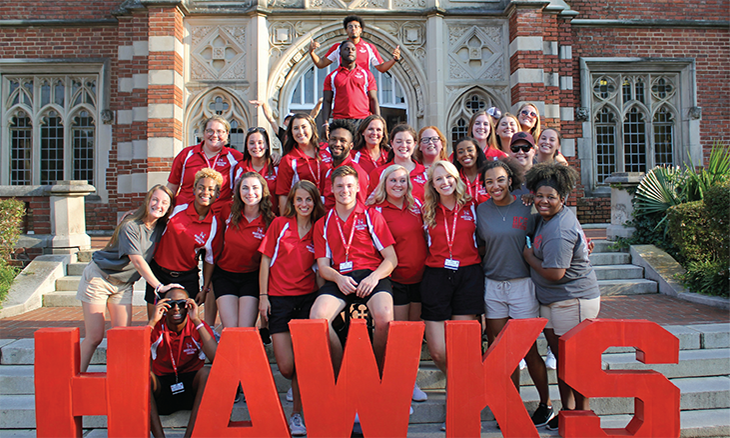As Mayor Todd Strange’s latest term in office winds down, ALMetro360 asked him a few questions about his service:
- Q) When you first took office as Mayor of Montgomery, what was your mission or vision?
- A) I think at that juncture my mission was to give back to the community, and to move our city forward from where we had been forever and always. Being involved in the Montgomery Area Chamber of Commerce through the private sector, I felt the we were moving in a lazy fashion in the way that we needed to move forward. Having spent five years in the County Commission as chairman, I knew a little bit about what went on in the city. While I knew the city and county needed to work together, the city drove the mission. And so, from that standpoint, I knew we needed to do something with the downtown. It was dead and dying. I knew we needed to get some excitement there. By this time, we had finished the Hyundai (Motors Manufacturing of Alabama) project and were reaping the benefits of that. We had begun the Biscuits’ stadium and the Renaissance (Hotel & Spa at the Convention Center) but that is all we had. There had been a strategic plan that had been adopted but had not been implemented. My first instinct was to protect our core. Little did I know we were coming into service during a great recession. The vision was simply to grow Montgomery and make it a place we would be proud to call home.
- Q) What challenges were ahead as you took office?
- A) As I said, little did I know we were facing a major recession. I knew there was going to be a recession. We did not know it was going to be a great recession. The obstacle that got in the way was the lack of money. We ended up with having to hang on to the city’s reserves. We only had $3 million in 2009 and 2010. We needed to rebuild the reserves.
- Q) How did you do that?
- A) We had to cut our workforce. We had to privatize a lot of things. We had to keep cars from going home. We had to find about $6 million very quickly. We had all these buildings in downtown that were 30 and 40 years of age that were dilapidated on Dexter Avenue, the primo avenue. We were looking for something that would jumpstart us, like a works program. So, we created the Alabama Sports Commission. It would be a leg in the stool of the whole economic development in the travel and tourism industry. We put a $100 million bond in place. We did renovations to Cramton Bowl and built the multiplex along with the soccer complexes. All of that started the talks with the Alabama High School Athletic Association, inviting them to bring all their championships to Montgomery. It’s kind of an “if you build it, they will come.”
We then tackled the downtown project. We were fortunate to get a $6 million grant from the state. We divided Dexter Avenue from about Perry Street toward Court Square, into 14 different properties and sent out RFPs (requests for proposals) for the private sector to come in to redevelop those. The genius of Jeff Downs, who at that time was our city manager, came up with the program. We had performance criteria and timeframes. If you didn’t perform, we reverted the property back to us, and many of the buildings were reverted back to us. Then, we awarded the property to someone else. As you look at Dexter, it came because of that. In 2015, we had the 60th anniversary of the Bus Boycott and the 50th anniversary of the Selma to Montgomery March. Our goal was to be under construction, to show some progress by that time. We spent about $8 million starting at the beginning of the trail on Mobile Highway and West Fairview, moved up to the Five Points area, down Montgomery (Street), all the way to Dexter. We worked beautifying Dexter with new streetscapes, new lighting and new signage. As we did this, we began to see (members of) the private sector along the trail get involved and spend their own money renovating their property. Then when the actual celebration started, we were ready for it. The money we had also helped to beautify the downtown and west Montgomery. The garden with the statue at Saint Jude, coming up to Cottage Hill and, as a matter of fact, where the Equal Justice Initiative Memorial is, was acquired due to tax liens. So, we were able to include that as part of the trail.
- Q) How has your previous business experience and your public service on the County Commission helped you through your tenure?
- A) At the beginning of my career I worked for Bell Telephone for more than 17 years. There, I got great managerial and operations training, a lot of human relationship training that has helped me for the rest of my career. From there I went to Blount International and gained experience in finance and marketing, personnel and contract negotiations. So, I had developed negotiating skills working in the world setting, negotiating contracts all over the globe and the U.S. I learned about the marketing, the finance, the accounting and the strategic planning of projects. Of course, then being in the car business about 10 years helped me learn about image and branding, and the best ways to promote. I worked three years in the Alabama Development Office. I was fortunate enough to be there when Hyundai executives announced they were coming. So, all that international experience I received with Blount, and all that contract negotiation experience that I gained working with people to develop their trust, it all culminated with that particular opportunity.
- Q) What determined your desire to run for Mayor of Montgomery?
- A) When all of a sudden you find yourself wondering what you do when you sell your business. I didn’t want to go to work for someone else, so it was natural for me to get into politics. When I was at the County Commission, even though it was part time, I learned first-hand about government. Then coming to the city, everyone said it was great having a businessman in the mayor’s chair. However, you don’t run government like you do a business, but there are business principles you can apply like privatization, like furloughs, like layoffs, some of those tougher situations. Like privatizing our golf operations, our janitorial services, keeping cars only in use on official business. Doing all these things saved the city about $650,000. Things like turning the lights off saved money. Some of the basic money savings things you do when you are trying to manage the bottom line, making payroll. The reorganization of our city management structure. At the time I went in, there were 26 direct reports to me. We created cabinet level positions and put individuals in place to run several departments. We’ve now got 14 cabinet members who run our city day to day. And the beauty of being our mayor, coming from where I’ve been, you surround yourself with good people, you give them the resources and get the heck out of the way. Then you follow up and just marvel at the ingenuity of these individuals who share your vision and care.
- Q) What do you see as your crowning moment as the Mayor of Montgomery? What are you most proud of?
- A) I will let history decide what the crowning moments are, but for the future of this city, what we have been able to do in technology developments, by putting in the Internet Exchange, is a big one. By doing this, it is going to have a far-reaching effect as much as Hyundai. The Internet Exchange has been a tool to the digital city platforms. It is an honor to be classified as a Smart City, to get the awards, to be listed as one of the top five cities in the Smart City Challenge. Landing MGMWERX, with it bringing in 20 or 30 people that are smart as the dickens to be here to help the Air Force. Having coding companies coming here with 30 to 40 people to do Air Force projects and governmental projects is included in these crowning moments. The technology sector was able to help us to get the F-35 based here. That was a huge announcement for Montgomery because that propelled us to get the drive technology into our school systems for the maintainer training needed. That will be the success for our local economy. While the pilots are outstanding, the maintenance crews will drive the economy. The technology systems of the F-35 are the most sophisticated used in warfare. So, all these accomplishments are what come together to make Montgomery a Digital City that is recognized in the same breath as an Austin, Texas, a Chattanooga, Tennessee, and a Huntsville, and to be called the Silicon Valley of the South. That is the payback moment for me.
- Q) What is your passion and what is ahead for you?
- A) My passion is my wife of 53 years, my children and my six grandchildren. Spending more time with them. Traveling to new horizons and getting a single-digit golf handicap. These are things that are passions and ahead for me.
My passion as it relates to my service is: “Did I make a difference in the lives of Montgomery residents? If the answer is yes, then I’ve been successful. My passion is to leave it better than I found it. How much better? History will judge.”
Extended Content –
- Q) Is there anything you think that you could have done better? Any regrets?
- A) My biggest regret is I didn’t take on education earlier. As the leader of the city, we have no authority but we have all the responsibility. So, as education goes so goes Montgomery. We have families moving because they are not comfortable educating their children in the public schools, and they don’t want to or can’t pay the private school fees. We’ve got to reverse that trend. Until we get competency at our board of education level that translates to our superintendent that translates to our classrooms, until we get discipline in our classrooms, until we get kids that can read and write and test well, we are going to continue to face challenges. I would love to have done more and earlier. I would love to have had a city school system but there is a provision in the Constitution of the State of Alabama that any city with more than 125,000 must have an elected school board. So, you are going to have an elected school system, but your 90 percent of the school system is in your city, your pushing a string uphill. A city school system means an appointed board. That is one thing I would say to my successor, jump feet first in on the education issue.
- Q) Is there anything that keeps you up at night?
- A) Trying to juggle it all in my mind, making sure I haven’t missed anything. Thinking about what it is that I must get done, what are the things that are most meaningful. At the end of the day, there are so many things to do and you can’t do everything. My favorite expression is, “if that is all I had to do I can get that done tomorrow.” You have so many balls you have to juggle. The one thing that does really impact any elected official, especially a mayor, is your people, and the safety of your people. Firefighters, the police force enforcing the law, public safety … you worry about that three o’clock telephone call and I have had those calls. That’s when there might have been another disaster. There haven’t been that many huge disasters, except for a major flood in 2009. When you have those kind of disasters, police shootings and things like that, that’s when leadership really comes. You do everything to prepare yourself, you train and take all those steps but when disaster happens it is gut instinct. From that standpoint that is what I worry about and what could happen in public safety.





